2010 Winners
Senior Thesis Division, Friends of the Libraries Awards
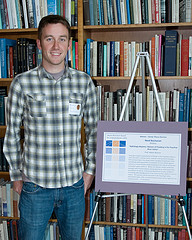 |
Reed Buchanan (History) Through a careful examination of floods in the Puyallup Valley in 1933 and 1977, and the social, cultural, and economic changes that connect them, this essay traces a gradual progression from completely anthropocentric conceptions of man pitted against nature to a more holistic understanding of the natural world and humanity’s place within it. While this holistic notion remained wrought with misconceptions and guided by an anthropocentric conception of nature, it demonstrated Pierce County residents’ increasing acknowledgment of the limits to their ability to control nature. This process which occurred in the Puyallup Valley mirrored broader shifts in environmental views at the regional and national levels. Access: Project ©Reproduction of this award project in part or in whole without permission of the author is expressly prohibited. |
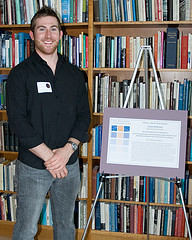 |
Luke McKinley (International Studies) This thesis examines the underlying assumptions of two small but influential movements in Northern Italy: the conservative political party called the Northern League and the Slow Food movement. They Lega Nord and the Slow Food movement have both revealed their own ethno-regionalist and “authentic” claims to Italian identity. These claims have produced an intersection between the notions of place, cuisine, and identity in a way that fundamentally excludes foreign immigrants. This thesis incorporates a significant literature review of secondary sources in order to situate it within the relevant scholarship about the topic. My argument is constructed by analyzing data collected by employing ethnographic field methods during a research trip to Piedmont, Northern Italy in August and September of 2009. Additionally, my data analysis incorporates primary source interviews from Italian news publications and official publications from the Slow Food movement, which I read as primary sources. Access: Project ©Reproduction of this award project in part or in whole without permission of the author is expressly prohibited. |
|
Laura Pierson (International Studies, Spanish) Since the 1960’s, Dominican bachata music has been associated with the poorest, blackest sectors of Dominican society. Recently, however, young Dominican music groups in New York City, most famously Aventura, have popularized the genre and made it a symbol of Dominican national pride. While the change in attitudes towards bachata music might initially suggest a move away from classist and racist nationalist ideologies, this paper argues that Aventura’s bachata articulates traditional racist ideas of Dominican nationalism that have circulated since the founding of the nation in the 19th century and reveal the nation’s colonial legacy. In particular, articulations of machismo and modernity in the music echo longstanding white supremacist ideals, which emphasize Spanish heritage and attempt to disguise or deny African traditions. The analysis draws on interviews with young adults in the Dominican Republic concerning Dominican music and migration, lyrics from popular Aventura songs, and Internet discussion posts about Aventura’s music. Access: Project ©Reproduction of this award project in part or in whole without permission of the author is expressly prohibited. |
|
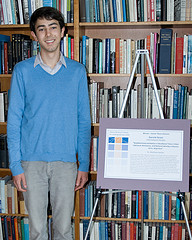 |
Garrett Strain (Economics, International Studies, Mathematics) In the wake of the 2001 Argentine economic crisis, Buenos Aires has undergone the largest real estate boom in the city’s history. In the midst of a whirlwind of urban development, several middle class neighborhood activist groups have emerged to contest the effects of this real estate boom on the identity of their neighborhoods and city. In particular, one of these neighborhood activist groups called Palermo Despierta has begun a campaign in the Palermo district to prevent the construction of mega-residential towers that have become central icons of neoliberal urban development since the crisis. My thesis argues that underlying recent Buenos Aires middle class neighborhood activism is a desire to defend historically imagined national narratives of middle-classness and Europeanness inscribed in the urban space of the city from the forces of neoliberal urbanism that are fundamentally reconfiguring the urban landscape to make Buenos Aires more globally competitive. Access: Project ©Reproduction of this award project in part or in whole without permission of the author is expressly prohibited. |
Senior Non-Thesis Division, Friends of the Libraries Awards
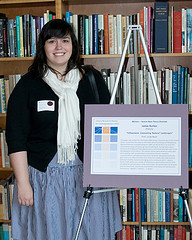 |
Jaime Barker (History, Political Science) Faculty Advisor: Linda Nash, History Access: Project ©Reproduction of this award project in part or in whole without permission of the author is expressly prohibited. |
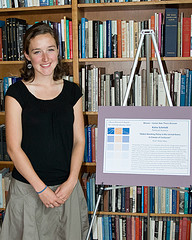 |
Katie Schmidt (Political Science, Communication: Journalism) The purpose of this paper is to investigate why climate change policy progress in the U.S. has been slow relative to other parts of the world. By tracking congressional, presidential, media and public attention to climate change since 1990, I show that climate change in an increasingly salient issue in the U.S. Why, then, has the U.S. failed to implement domestic climate change policy and participate in binding international agreements? I argue that U.S. state-centric political structure discourages a coherent national approach to climate change policy, leading to congressional confusion over the seriousness of global warming and what should be done about it. This, combined with a presidential tendency to mention climate change only when it aligns with other administration priorities, has prevented constituency-forming ideas from taking root. The result has been fragmented state and local government action on climate change at the expense of a federal-level strategy. Access: Project ©Reproduction of this award project in part or in whole without permission of the author is expressly prohibited. |
Senior Non-Thesis Division, Kenneth S. Allen Award
Roderick Yang (Biology, History)
Faculty Advisor: Jack W. Berryman, Bioethics & Humanities
The Invention of Nutrition
The idea of "nutrition" as we understand it is relatively recent. Prior to the 19th century, food was more or less just food, with the major concern of nutriment being quantity. But with developments in the fields of organic and biological chemistry, scientists in the 19th century began to recognize that food contained a variety of chemical substances, and soon the deluge began. This paper follows the emergence of nutrition as a science, anchored by the major scientific discoveries in the early days of the field, and the concurrent birth of dietary recommendations. Such recommendations, particularly those issued regularly by the USDA since the 1894, reveal the growing complexity in the last 100 years of our understanding of what constitutes food, and what it means to eat healthfully.
Access: Project
©Reproduction of this award project in part or in whole without permission of the author is expressly prohibited.
Non-senior Division: Kenneth S. Allen Awards
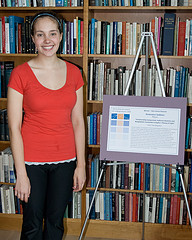 |
Gennie Gebhart (Honors) Johanne Kepler’s investigation of the epistemology and ontology surrounding the nature of light bridged the gap between his Lutheran and Neoplatonic foundations and his revolutionary idea of a physical, causal astronomy. Kepler sought to find logically the “true cause” behind the virtus motrix (“motive power”) that moved the planets and determined their organization. He employed Lutheran regressus reasoning and merged Plotinian-Neoplatonic emanationism with his own empirical observations to form a theory of light, which he legitimized with analogy and exemplum reasoning. Though his observations forced him to reject the Neoplatonic idea of light as a virtus motrix, he demonstrated that light and the virtus motrix were two species of the genus of forces that attenuate with distance. These conclusions allowed Kepler to theologically, mystically, and empirically confirm the motion of the planets as the effects of a universal, physical law. Access: Project ©Reproduction of this award project in part or in whole without permission of the author is expressly prohibited. |
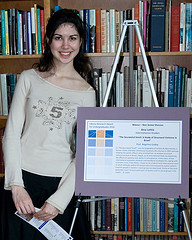 |
Ana Lottis (International Studies) In The Sourmetal Smell I use the biography of Sandro de Nascimento, a former street child who infamously hijacked a Rio city bus in 2001 and was killed by the police officers who arrested him, to analyze structural violence at work in Brazil. I begin, at an international level, by examining the effects on poverty and, partly in consequence, crime rates, of the international economic situation and neoliberal strategies for coping with economic crisis. From there, I move on to a hybrid local-international level in which attitudes within the police and criminal/juvenile justice systems towards people in Sandro’s social group are examined. Finally at the local-bystander level I analyze portrayals of Sandro and his social group in the media. Access: Project ©Reproduction of this award project in part or in whole without permission of the author is expressly prohibited. |
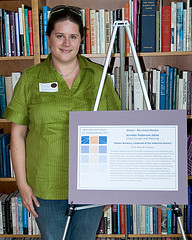 |
Jennifer Robinson-Jahns (Community, Environment, and Planning) The Rainier Brewery has been a Seattle institution for over a hundred years. As a keystone of Seattle’s pre-Prohibition Brewing Industry and home of Emil Sick’s Rainier Beer, the Rainier Brewery complex at 3100 Airport Way has been a longstanding and beloved Seattle icon, as well as an important piece of the larger patterns of brewing history. In spite of recent modifications, the property retains many original architectural details and, as a working site until the 1990’s, provides a unique insight into the evolution of the brewing industry over the last hundred years. Because of this important role in history, the Rainier Brewery deserves status as a Registered Washington Heritage Register Landmark, although it is questionable if it would qualify due to issues of historic context and integrity. This sample nomination is meant to serve as a history of the site and a foundation for future preservation or nomination efforts. Access: Project ©Reproduction of this award project in part or in whole without permission of the author is expressly prohibited. |
Honorable Mention: Kenneth S. Allen Awards
Alison Bilow (History, Anthropology)
Advisor: Lynn Thomas, History
Senior Thesis: The Bantu World and the Star: Domestic Servants and Racial Respectability in the 1930’s South African Press
Monika Fischer (Biology)
Advisor: Joe Ammirati, Biology
Non-senior project: Orchid Nutrition and Development with Mycorrhizae
Andrew Schwartz (International Studies)
Advisors: Maria Elena Garcia, International Studies and Deborah Porter, Comparative History of Ideas
Senior Thesis: Memories Inked, A History Remembered: Salvadoran Immigrant Gang Tattoos in Los Angeles
Gordon Waite (Comparative Literature, Comparative History of Ideas)
Advisor: Jennifer Bean, Comparative Literature
Senior Non-thesis project: Evolution of Dialogue in Early Sound Film